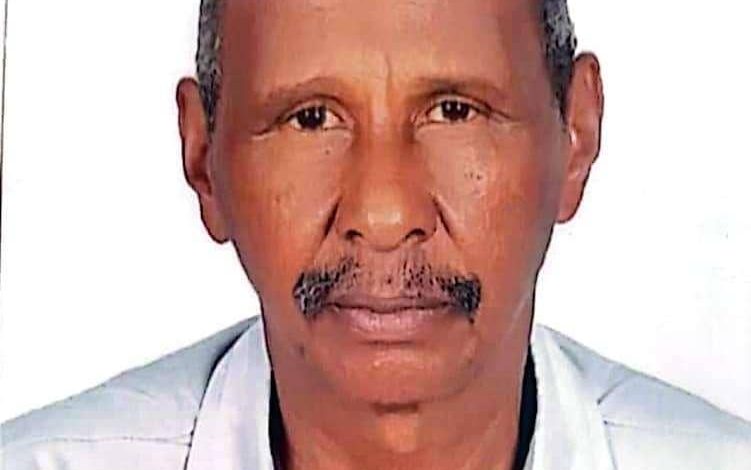In the circumstances of war…Poet Abdul Azim Akol remembers Shabeka… “Oh, how sweet are those who left”

Sudan Events – Follow-ups
Poet Dr. Abdul Azim Akol says that he told the late great poet Dr. Ali Shabeka in the presence of the late poet Muhammad Yusuf Musa, head of the Sudanese Song Poets Union at the time, and in the presence of the late poet Professor Al-Sir Doleeb and in the presence of the late poet Saif Al-Din Al-Dasouki and the sensitive poet Mukhtar Dafallah. He said I told Dr. Ali Shabeka “I consider his song for the capital duo and the immortal melodies of Al-Sani Al-Dawi…about travel” to be one of the most beautiful Sudanese songs that expressed longing for the travel of loved ones.
“Everyone agreed on what I said and it was suggested to me at the time by an article I published in Al-Usbu’ newspaper on the page of the late Mohamed Youssef Musa. After publishing the article, Dr. Ali Shabeka visited me at our humble home, thanking and appreciating me,” He said.
“They were indeed a good example. They shaped the conscience of the Sudanese people with their dazzling poetic masterpieces that express all of us in the desert, the city and the afternoon,” He added. “The word Al-Dahari reminded me that I was one evening in the company of the great poets Taj Al-Sir Abbas, may God prolong his life, the late Mohamed Youssef Musa, the late Mahjoub Siraj and our uncle, the great bag poet, the late Mohamed Bashir Atiq. We were visiting the late poet Mahjoub Sharif, who had returned from abroad after a medical trip. We visited him at his home in Al-Thawra, Omdurman, and he asked me to read a group of poems. The word Al-Bawadi was mentioned in one of the poems, so he said Al-Bawadi reminds me of my poem that the late Mohamed Wardi sang (Beautiful and Impossible). The late Mahjoub says that he handed the poem to Wardi, who began to compose its melody but stopped, meaning, ‘I came across the word ‘the farthest reaches of the world’ which was mentioned in the content and context of the poem like this’.” He added.
“The tune stopped at the word ‘the farthest reaches’, as Wardi asked me to change the word ‘the farthest reaches’,” Akol said. “On that wonderful day I tried to change the word but did not succeed. A week later there was a football match between Al-Hilal and Al-Merreikh at Al-Hilal Stadium. I attended the match and after the match, next to the Omdurman Post Office, we rode the ‘princess’, which is a box car with seats for passengers. The fans of Al-Hilal and Al-Merreikh were arguing after the match while they were with me on the way back home, and I was listening to them silently… until one of them said to the other, ‘When do you know Al-Hilal? You didn’t come close to noon.’ Here my ears picked up the word ‘noon.’ I returned home and changed the word from ‘the farthest reaches’ to ‘from noon.'” Mahjoub said.
“Today I remembered a beautiful song by the late Dr. Ali Shabeka, also composed by the late Al-Sani Al-Dawi for the late duo of the capital, Al-Sani Al-Dawi and Ibrahim Abu Diya. Some of its verses honestly express our situation today as we live in such difficult circumstances and miss our families and our paths have separated us. But Sudan will always remain, all its brilliance, beauty, chivalry, humanity, kindness, mending broken hearts, gathering in joys and sorrows, mobilization and altruism.” He continued.



